In May 2015, a group of ambitious philanthropic collaborators, including the Skoll Foundation, pledged to make a measurable dent in Africa’s hunger crisis through a catalytic $100 million investment to dramatically scale the work of One Acre Fund. A Skoll Awardee in 2010, One Acre Fund boosts the productivity of smallholder farmers with financing and training they need to grow themselves out of poverty.
One Acre Fund now serves more than 750,000 farmer families in Africa directly and more than a million additional families through government partnerships. With the $100 million Audacious Project investment, One Acre Fund set a bold target for 2020: 1.25 million farming families reached through the core program, and another 3 million reached through government partnerships and private sector agrodealers. To unlock the Audacious funding, they’ll need to reach these goals, One Acre Fund must raise $200 million—a 1:2 matching mechanism. Their big picture systems-level vision of change is to fully transform agriculture in sub-Saharan Africa.
Over the last ten years One Acre Fund has grown in leaps, with more than 6,000 staff now in sub-Saharan Africa. I recently sat down with Andrew Youn, Founder and CEO of One Acre Fund, for a conversation about what drives him in his work, some of his early setbacks, and what he loves about the complexity of massive warehouses.
I started our conversation by asking Andrew how it all began back in 2006.
Andrew Youn: One Acre Fund was originally inspired by two families. I was just traveling randomly in Kenya. And on the same day I met two neighbors. The first family that I met um, this farmer’s name was Christine. And she was just desperately poor—I’d never met a family this poor. She had lost a child. Her remaining children were just always hungry, visibly thin, and I just knew that that was deeply and morally wrong.
Then thankfully, I met uh her neighbor, Betty, and Betty was yielding four times as much food in the same area of land, and her family was thriving. After an hour of asking Betty questions, you know, what’s different about your farming, we could only identify three basic things: so, one of those things was using naturally produced uh hybrid seed from local companies, a tiny micro-dose of fertilizer, and she spaced her seeds carefully instead of scattering them.
Three simple things and her life was completely different. So, on that day I was both frustrated and shocked by the depth of need that I met in this first family, but also simultaneously inspired by how relatively simple it is to achieve a completely different life.
And so, of course, you know, the sort of opportunity smacking you in the face and I had to do something about it.
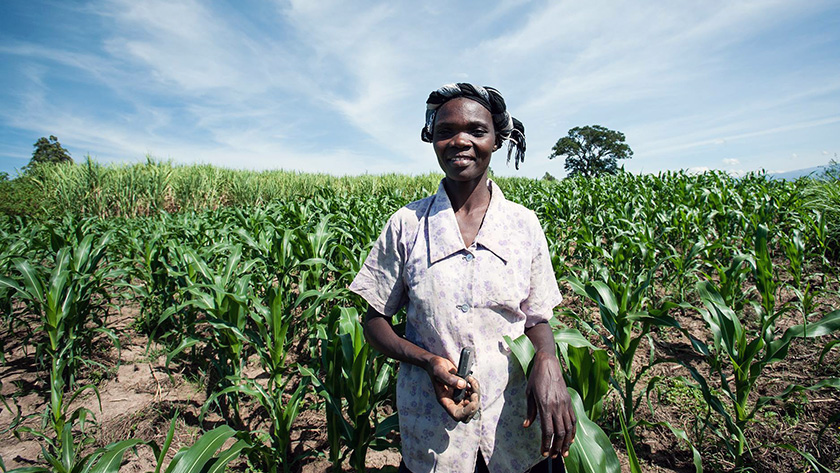
James Nardella: What did you do?
Andrew: I went back to my second year of business school and started a pilot with just 40 families. Even though I really knew nothing about agriculture at that time, those farmers had the best harvests of their entire lives. We provide the same services we provide today: small loan, delivery of basic farm inputs, some training, really simple stuff. And everything since then has been growth and all these kinds of behind the scenes things.
James: What’s that look like?
Andrew: So today we serve about 750,000 families directly through our core program. And about another million families per year through various kinds of partnerships in about six countries in East Africa. We’re growing really quickly. It’s just a really, really exciting time. We think that the total market of smallholder farmers in sub-Saharan Africa is about 50 million households.
And so much of our future hinges on those 50 million households. When those families become more productive, they end poverty because they’re just such a large number of people and farming is so predominant in the source of income. The product of farming is food—and so they feed their communities and they end hunger. And then so much of our environmental future is tied up with those families. There’s only two ways to feed Africa: we can either clear more land, uh which is an environmental disaster, or we can make our existing land more productive.
So, these 50 million hero households are really uh such a big component of our shared future.
And you know, we’re still very small compared to that as an organization, but it’s really exciting to think about all the different ways we could grow to kind of help make a dent with those families.
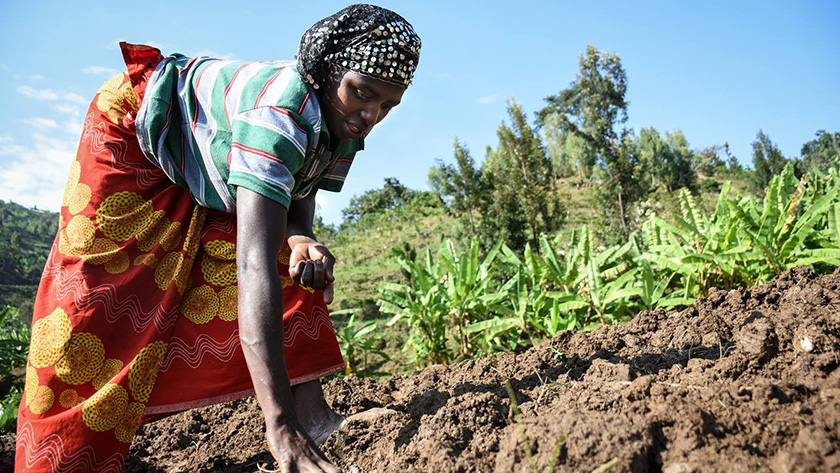
James: So, in the early days, tell me what you were doing. What did your days look like?
Andrew: You find yourself doing everything. I would like to be doing everything from talking with funders to literally drawing payroll on my ATM card and paying it out, you know, directly to people and recording that in like a written ledger. It’s not something I would say I was particularly well suited to. And I think it took a couple years actually for us to really get going.
We were serving something like 600 farmers by the end of year two, which is you know, not very good. And I had this interest in passion fruit, which is an alternative crop, and that totally failed. You know, it just felt like the world was kinda coming crashing down and stuff like that.
As with any disappointment, acceptance of course is a very, very challenging thing, especially when so much is on the line, you know.
Andrew: So, it’s been interesting to see kind of the different phases of growth of the organization. Personally, I’m a lot more comfortable now with some of the later stages where we’re working through complexity is something that I really like doing and like working with.
Our motto is Farmers First. And so, everything we do is measured against the yardstick of will it meaningfully improve the lives of this woman over a period of time for as many of these women as possible. I see my job as to help translate that into what that means for people’s day to day jobs.
So, for example, we have a procurement department. They buy things for us across six different countries, you know, transactions ranging from $10 to $2,000. What I like to say is, these people’s jobs are to aggregate the power of hundreds of thousands of hardworking families for whom one dollar makes a really big difference, and to purchase things with the power of those families on behalf of those families, you know. I think every person on our team does this job that’s like supremely important for the people that we’re serving. It’s when you put those pieces together that it adds up to an organization that actually delivers value for the families that we serve.
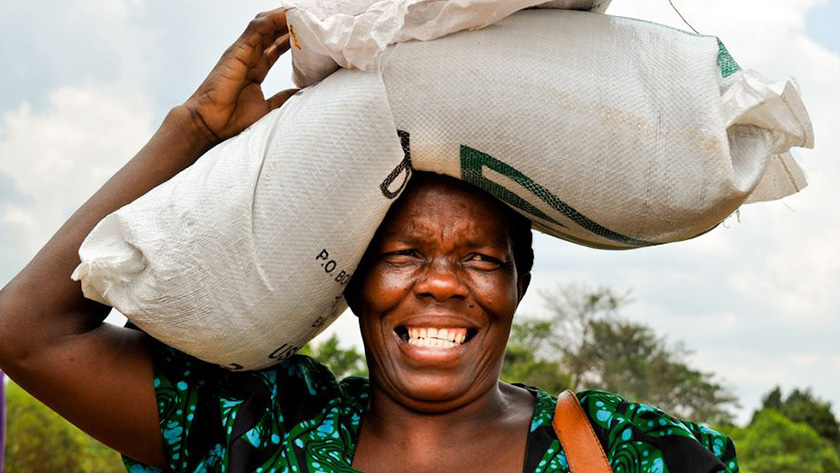
James: Where did the interest in internal complexity come from?
Andrew: You know, internal complexity adds up to scale, I guess, and I’ve always been really interested in whatever helps us to achieve scale. I guess I just find that inherently fascinating, like seeing someone take a really big hairy problem and 500 people, and then turn that into like this streamlined, you know, super-efficient unit. It’s a really glorious thing to see.
James: When I was in Rwanda visiting your work, I remember walking into one of the very large warehouses and being impressed by the size of the logistical organization you’re needing to run. So, when you talk about procurement: what do you see when you walk into one of those warehouses?
Andrew: A warehouse is a really interesting thing. It’s a nice physical manifestation of the work that we do and of real hopes and dreams. Every sack in this gigantic warehouse piled 40’-50’ high means opportunity for somebody. That’s the beauty of a warehouse: It reminds you of kind of the scale and importance of what we’re doing.
James: So, you’ve been living in East Africa for almost a decade. You started in Kenya and now you live in Rwanda. Why are you living there?
Andrew: I strongly believe that serving a customer well involves really intimately understanding their needs. So, it’s a really important for most of our leaders to really live in rural communities near the people that we serve. It’s about getting to know them as people also for just plain logistical reasons, being immersed in the physical operation and not being too far away, I think it’s very important for operating a good business.
It’s a big problem in international development. You know, you get a lot of headquarters-field disconnect, you know, but when your headquarters is like in a field, there’s not gonna be that much disconnection.
James: And what has it taken for you personally to set up life there?
Andrew: Thankfully, like a lot of the people on our team, I enjoy it actually, and have found it to be really not be much of a sacrifice or anything. You know, you get a lot of nature, lots of walks, lots of time spent cooking and stuff like that. It’s a pretty relaxing life.
I imagine that a lot of people think the rural life is not that much fun, but it really is joyful, you know. Especially in purpose driven work, to be able to see that purpose right before you is intensely motivating.
James: As you come to know the world in its beauty, but also in its doubt and in its darkness, how do you continue to apply your time and talent to these issues that are hard to make progress on?
Andrew: You know, Gandhi has this amazing quote, which briefly paraphrased is: if you’re in doubt or you have question about anything, consider the face of the poorest person you’ve seen recently, and it will clarify things.
If you’re having a very difficult decision, when you go back to the fundamental purpose of what you’re doing, it should make that decision clear.
It sounds kind of cheesy, but there’s a photograph I take every year. It’s just a photo of a family that we serve, and I try to notice the details that remind of us of our shared humanity. This year, for example, it’s a mother holding a baby, and a child that’s about the same age as mine.
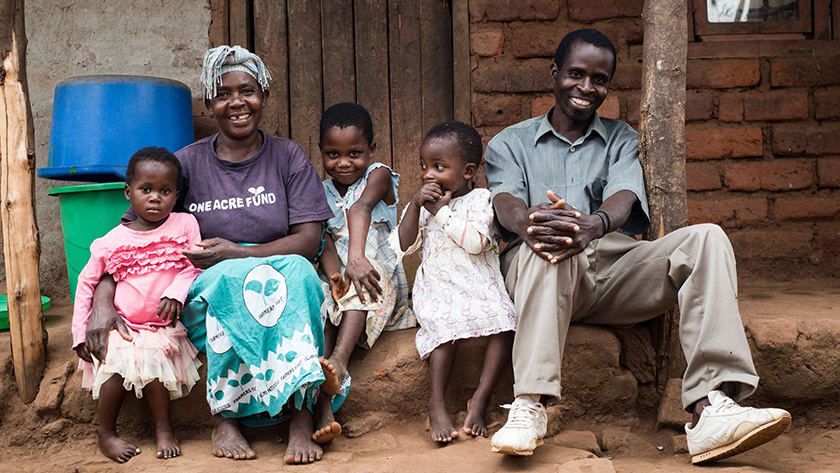
James: And how has becoming a dad helped you relate to the customer?
Andrew: A lot of the parents we serve have essentially decided that they don’t see themselves necessarily moving out of poverty but moving their kids out of poverty is like the sole goal of their entire lives.
It’s incredibly inspiring to see a parent, wake up before the sun rises to collect water and wood, cook over an open fire, so that their children can have some food in the morning, to work all day in the fields, often with a baby carried on their back. You know, just this intense degree of personal sacrifice is completing inspiring. The people we serve are the most deserving and hardworking people on the planet.
So being a father, you can start to understand that, you know, how you would set aside everything for your child. It helps you to understand kind of the inner motivation of the people that we serve and cut through kind of the day-to-day quagmire of different kinds of stressful things and organizational complexity.
James: So, take a minute and just think, what’s the world that you’re working to create?
Andrew: The saying goes, “Talent is distributed evenly throughout the world, opportunity is not.” And the world that I think so many of us have are trying to create, and one that I’m intensely passionate about is a world that no matter what circumstances you were born in, specifically if you were born into rural obscurity in sub-Saharan Africa, that should not affect what you can attain as a person.
That’s deeply morally wrong, that idea. It’s repulsive.
We need to create a world where even if you were born to rural obscurity, and no one has ever heard of you, and no one thinks about you, that you have an opportunity to become the president of your country, or an important scientist that advances humanity, or an astronaut or a pilot, or a driver, or really whatever you want to be.
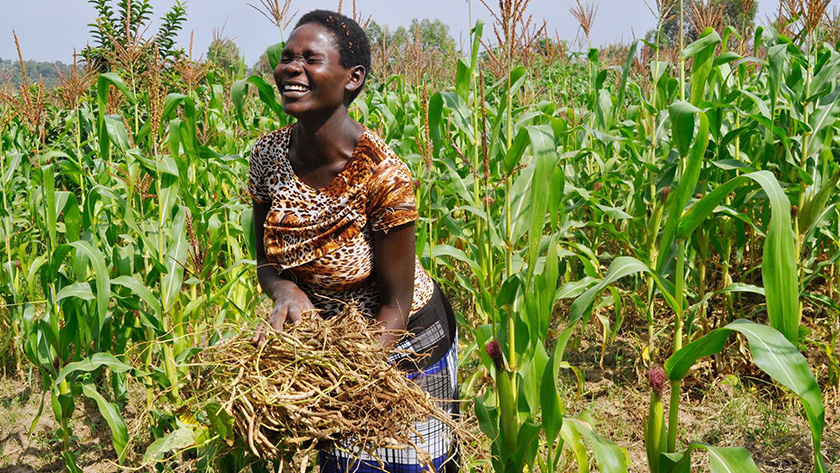
We’re far away from that world, but there are lots of practical things that we can do to move closer to that world, to achieve that world.
You know, we have incredible technology to fight poverty. For example, like a four-dollar malaria mosquito net can end malaria transmission for a person for five years. Four dollars! It’s incredible.
We’re in agriculture. We have these very simple technologies that dramatically improve someone’s productivity. We just haven’t delivered it to everyone. So, it’s really kind of a boring delivery job that we’ve gotta engage in here. It’s not like terribly sexy, but it’s honestly like fairly straightforward. So, it’s exciting. It’s an inspiring world and one that’s actually attainable.
James: What stands in your way?
Andrew: We are committed to serving the poorest, hardest working people on the planet. And there’s just, there’s no revenue engine in the world that’s going to make that happen. You know, it’s never going to be profitable to do that.
There’s no money that automatically flows to successful nonprofits and helps them reach truly meaningful scale. We are still only serving, you know, low single digit percentage points of our total market opportunity. We have, in my opinion, a very strong program model that’s highly scalable. It’s been very difficult for me to accept that in some cases we have to deliberately ratchet down growth because the funding is simply not there.
Now, I think there’s a lot of great organizations and foundations, and philanthropists who are steadily changing that narrative, but we’re really kind of making up for lost time. I’m just really am passionate about the work of philanthropists in particular who are stretching those boundaries and really kind of challenging the conventional wisdom that you need to start a foundation and sprinkle your funds around really small.
There are more and more philanthropists who are thinking more boldly, and I really just hope that that will continue in the future.